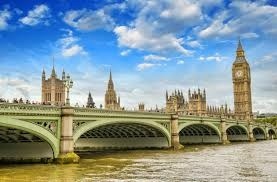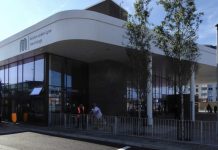It’s two hundred miles away, it’s economy has continued to accelerate away from other UK cities, and we in Manchester feel that too many decisions are, made there.
A report out this week suggests that those living outside of London believe that the economy, politics and the media is too London Centric.
While we agree that the London economy benefits the country as a whole, we don’t believe that it is particularly good for our region and our national politics and policymaking does not respond to local needs.
A majority of us also believe that the location of Whitehall and Parliament within London leads to national decisions that are too focused on the needs of the capital, rather than other UK cities.
The report, from the Centre for Cities, surveyed people living in sixteen cities outside of London and held roundtables with local government, business, community and university leaders in Manchester as well as Bristol, Birmingham and Leeds.
For Manchester eighteen per cent of those questioned believed that London had a positive impact on the city’s economy whilst sixty eight per cent thought it had a fairly positive impact on the UK’s economy as a whole.Many participants wanted to know how the city can complement the London market, and feeling they have a different and complementary ‘offer’ that would be beneficial to investors currently only focused on London.
Seventy four per cent of respondents felt that London had too much focus when it came to political decisions and only twenty one per cent felt that central government was responsive to issues in the region.
Over three out of four UK adults outside London (76 per cent) thought that national coverage of news stories in the UK is very or fairly focused on London.The BBC’s recent move to Salford in Manchester demonstrated Government’s commitment to rebalancing the economy and media influence in the UK. But the move has provided benefits as well as challenges.
The BBC has provided a basis for regeneration in Salford and has encouraged more media companies to locate in the area. Yet with most politicians, media companies and celebrities based in London, they have had to conduct more remote interviews rather than hosting people on shows.
People viewed London as expensive (62 per cent) and crowded (59 per cent) more than any other descriptors they could choose from, followed by cosmopolitan (35 per cent), lively (32 per cent), cultural (32 per cent), diverse (30 per cent) and chaotic (30 per cent) and only 32 per cent of UK adults outside London think the capital is a good place to raise a family.
With High Speed Two on the agenda, the survey shows that being closer to London matters for how people are linked into the capital. In turn, business and city leaders are thinking about what HS2 will mean for them. Some noted that being ‘closer’ to London will be good for their city, and others noted it was more important to be better connected to other cities in their region.
The report concludes that the results are a call to action for national politicians.
As the country heads for a general election in 2015 and faces a Scottish referendum for independence, Parliament and Whitehall will need to convince people that the UK is working for them. While London’s growth is quite visible, its impact on the rest of the country is not, and it is not well understood.
But cities such as Manchester can take advantage of some of London’s weaknesses. Recognising people view the capital as expensive and crowded and not necessarily a good place to raise a family, other cities can build on their strengths of being affordable and family-friendly.
You can read the Full report HERE







